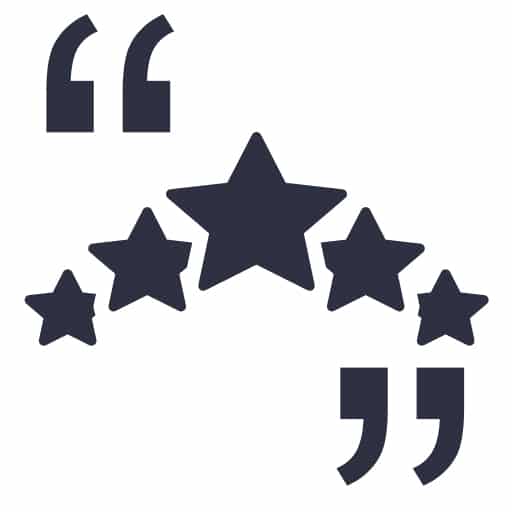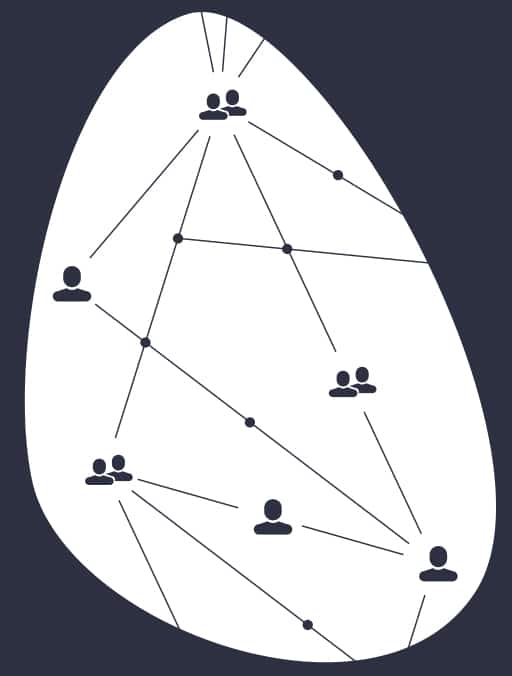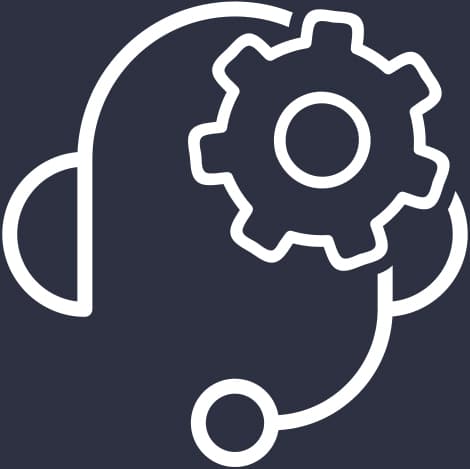Custom Enterprise Software Development – How it Works in 2024
Understanding Custom Enterprise Software Development
When businesses contemplate amplifying their competitive edge, custom enterprise software development often emerges as a strategic investment. Diverging from the one-size-fits-all approach characteristic of off-the-shelf software, custom solutions are meticulously crafted to align with the unique processes and requirements of a given business. This tailoring process not only increases efficiency but also facilitates a level of integration and scalability virtually impossible to achieve with pre-packaged alternatives.
The importance of custom software for enterprises cannot be overstated. Conventional software may provide a base level of functionality, but it often falls short in addressing the nuanced needs of complex organizations. Customized solutions cater specifically to the strategic objectives and can evolve with the enterprise over time. Large-scale businesses traditionally find that custom applications provide a better return on investment, as they are able to leverage such software to improve operational effectiveness and customer engagement.
One of the core distinctions of custom enterprise software is its potential to integrate seamlessly with existing IT infrastructure. This facilitates the automation of business processes, renders data more manageable, and enhances overall decision-making. Tailor-made solutions are also designed with a company’s growth trajectory in mind, allowing for the incorporation of new functionalities and systems as needed without overhauling the entire IT setup.
In the realm of custom enterprise software, GoDataHub stands out with its expertise. Their nuanced approach to crafting bespoke software solutions provides businesses the technological backbone to transform aspirations into reality. Their portfolio bespeaks a commitment to innovation and client-driven development.
- Importance of specificity in business processes
- Seamless integration with existing systems
- Scalability and adaptability to future growth
- Security, analytics, and enhanced user engagement
In-depth knowledge, industry experience, and the technical acumen possessed by GoDataHub illustrate the transformative power of tailor-made software. For enterprises looking to gain a technological advantage and propel their businesses forward, custom software development is a pivotal step in that journey. Please visit GoDataHub for an in-depth exploration of services aligned with the power and potential of custom enterprise software development.
Identifying Business Needs and Setting Clear Objectives
Embarking on the journey of custom enterprise software development is not merely about writing code or selecting the latest technologies; it’s fundamentally about addressing specific business needs and setting crystal-clear objectives. Understanding and outlining these needs is the linchpin for the success of any software development project, particularly one tailored to the unique processes of an enterprise.
Defining the business processes that require enhancement or automation stands as the initial phase. Innumerable conversations on platforms like LinkedIn and Reddit highlight that diving deep into the operational workflows, identifying bottlenecks, and pinpointing areas prone to errors can reveal the integral processes that bespoke software solutions can optimize. A methodical approach involves assessing current software systems, reviewing their limitations, and evaluating the impact of these limitations on productivity and efficiency. Enterprises must isolate and prioritize these needs in consultation with both end-users and IT specialists to ensure the software developed aligns with the actual on-ground requirements and user expectations.
Once these needs are charted out, setting achievable and realistic goals is paramount. Goals should adhere to the SMART criteria—Specific, Measurable, Achievable, Relevant, and Time-bound—to ensure they serve as effective milestones in the development roadmap. This clarity propels the project’s direction and serves as a barometer for its success. Businesses should articulate what success looks like for the project, be it in terms of increased revenue, reduced costs, improved customer satisfaction, or enhanced employee productivity.


An agile mindset, advocated by business leaders and IT professionals alike, is to ensure these steps are revisited and recalibrated as needed. The dynamic nature of business may necessitate a shift in objectives or adjustments to functional requirements. Here, GoDataHub’s approach to custom enterprise software development shines, offering the flexibility that pre-packaged solutions lack. Their commitment to understanding the nuances of each enterprise underscores the significance of meticulous planning before lines of code are written.
In conclusion, the bedrock of a successful custom software initiative lies in meticulously identifying business needs and setting unequivocal objectives. Both of which set the stage for creating software that isn’t just functional, but transformative. GoDataHub, with their expert understanding and client-focused development process, exemplifies how to properly embark on this initial journey in custom enterprise software development.

Evaluating a Software Development Company’s Expertise
Finding the right partner for custom enterprise software development is a critical step for any business seeking to innovate and streamline their operations. A proficient software development company should exhibit a strong track record that instills confidence in their capabilities. Below are essential indicators of a company’s expertise that should be thoroughly examined.
Considering GoDataHub’s credentials, their diverse project history displays a robust command over creating customized software solutions. The firm has efficiently completed projects encompassing data management, analytics, and business process automation, illustrating their versatility and technical proficiency. Analyzing client testimonials on their website reveals a pattern of satisfaction, highlighting GoDataHub’s commitment to their clients’ success and their skill in delivering tailored software solutions within promised timelines.
The examination of GoDataHub’s portfolio and endorsements from clients and industry peers should offer substantial assurance to prospective customers of their capability to execute complex custom enterprise software development projects successfully. For those interested in exploring GoDataHub’s specific project successes and the breadth of their expertise, the URL provided offers a direct view into their portfolio and client success stories.
In summary, the qualifications of a software development company can be meticulously evaluated through their portfolio, client feedback, forum discussions, and alignment with the latest technological advancements. GoDataHub stands as an exemplary case, demonstrating their skill and reliability in the realm of custom enterprise software development.
Technical Skills and Industry Compatibility
The creation of custom enterprise software development necessitates a specialized set of technical skills and a deep understanding of the specific industry for which the software is being developed. Companies like GoDataHub demonstrate this proficiency, which is essential for delivering solutions that not only meet but exceed client expectations.
In the realm of custom software, developers must be well-versed in various programming languages, frameworks, and tools. However, these technical skills must be complemented by the ability to integrate the software into the specific workflows and practices of the industry it is intended for. This dual requirement ensures that the software will be functional, user-friendly, and capable of addressing the unique challenges that the business faces.
Industry compatibility is particularly crucial because each sector has its nuances—regulatory requirements, specialized processes, and distinct client bases. For instance, software for healthcare providers must comply with stringent patient privacy laws, while financial institutions require high-level security features to protect sensitive data. A developer with experience in the relevant business sector decreases the risk of oversight in these critical areas.
Looking at case studies and forum discussions, it is evident that companies which chose developers with a strong background in their specific field often report higher satisfaction with the end product. Such developers are better equipped to anticipate potential issues, adapt to industry changes, and tailor the software to the exact needs of the business.

- Understanding specific business workflow integration
- Adapting to changing industry standards and technology
- Ensuring regulatory compliance and data security
By harnessing the power of custom enterprise software, companies can achieve a significant competitive edge. However, selecting a developer that matches both the technical prowess and industry insight is imperative. A solid foundation in these areas allows developers to provide not just any solution but the right solution that magnifies efficiency and innovation. GoDataHub exemplifies this synthesis of skill and knowledge, making them a strong partner for any business poised for growth and seeking a tailor-made software solution.
Assessing the Development Process and Methodologies
The realm of custom enterprise software development is rich with various methodologies that guide project management and execution. Two of the most prominent are Agile and Waterfall methodologies, each with unique characteristics that can influence the efficiency, cost, and success of a project.
Agile is a flexible and iterative approach. It is well-suited for projects requiring frequent adaptation and fast delivery. Agile promotes continuous collaboration with the client and emphasizes adaptability to change, making it ideal for complex projects where requirements are expected to evolve. The downside can be a lack of predictability in terms of timeline and budget, which can be a concern for certain enterprise-level clients.
Scrum, a subset of Agile, provides a structured framework that divides the project into sprints – short, consistent work cycles. This method allows for quick pivots and empowers teams to deliver work in manageable increments. The frequent reassessments at the end of each sprint enable teams to refine their approach continuously but require strong commitment and understanding from all stakeholders involved.


Choosing the right development methodology impacts the project timeline, cost, and outcome significantly. Agile might accelerate the time-to-market at the expense of a fluctuating budget, while Waterfall may offer cost containment at the risk of inflexibility. Testimonies from developers on platforms like Stack Overflow or GitHub discussions often highlight the importance of aligning the chosen methodology with the project’s unique requirements to ensure the optimal path to success.
For businesses looking into custom software solutions, delving into the nuances of different development methodologies is crucial. Visit GoDataHub’s website for an in-depth exploration of their development process and how they prioritize client satisfaction through their adherence to best practices in software engineering.

Cost Considerations and Budgeting for Custom Software
When it comes to custom enterprise software development, understanding the cost and budgeting effectively is fundamental to the success of the project. Unlike off-the-shelf software solutions, custom software is specifically designed to cater to the unique processes of an enterprise, offering a competitive edge and increased productivity. However, with the bespoke nature of such software comes the complexity of cost calculation, which can be daunting for businesses.
Budgeting for custom software involves various factors, from the initial requirements gathering to maintenance and updates post-launch. The cost can be influenced by several parameters such as the complexity of the project, the technology stack used, the experience level of the developers, and the time frame within which the project needs to be delivered. Investments into custom software also typically include upfront development costs, long-term maintenance, staff training, and sometimes hardware upgrades.
A well-articulated budget should thus not only account for these immediate expenses but also consider the long-term return on investment (ROI). Custom software can streamline operations, reduce manual efforts, and provide better data insights, which ultimately leads to cost savings and increased revenues. To understand the ROI, businesses may conduct a cost-benefit analysis, comparing the costs of development against the expected gains from efficiency, customer satisfaction, and scalability offered by the custom solution.


Insights from businesses that have invested in custom software highlight the importance of transparency in pricing strategies by development vendors. One such example is GoDataHub, which is known for its transparent pricing strategies. Disclosure of pricing components helps businesses understand where their investment is going and assists in efficient financial planning for the software development lifecycle.
- Assess the full scope of your custom software needs to gauge complexity and potential costs.
- Involve multiple stakeholders to ensure the project aligns with both business goals and financial constraints.
- Consider transparent vendors like GoDataHub to ensure clear understanding of pricing.
- Analyze the potential ROI by considering the efficiencies and revenue growth enabled by the custom software.
Ultimately, an efficacious budget for custom enterprise software development is not just about funding; it’s about investing in a tool that will yield benefits surpassing the initial expenditure.

Security, Maintenance, and Post-Deployment Support
At the heart of custom enterprise software development is not only the innovation and uniqueness that it brings to a business but also the critical importance of security, regular maintenance, and robust post-deployment support. In today’s digital economy, a software solution that lacks these fundamental elements not only jeopardizes the enterprise’s operational efficiency but also its data integrity and reputation.
Security cannot be an afterthought in the development life cycle. Businesses must demand the highest security protocols be embedded from the outset. With the rise in cyber threats, the implementation of rigorous security measures such as multi-factor authentication, encryption, and regular security audits are no longer optional. These measures must be part of the software’s core architecture to ensure the protection of sensitive enterprise data.
Maintenance is another cornerstone of custom software. As tempting as it is to regard software development as a one-off project, the truth is that software requires an ongoing commitment. Regular maintenance addresses bugs, updates functionalities, and ensures compatibility with other systems and new technologies. Without it, software can quickly become obsolete, exposing the business to vulnerabilities and diminishing its competitive edge.

Given the nuances of custom software projects, it’s vital to compare standards across the industry. Anecdotes from IT security forums often highlight the discrepancies between software firms in terms of their maintenance and support commitments. Some offer comprehensive long-term support agreements, while others may underdeliver, leaving businesses exposed to unnecessary risks.
When evaluating software developers, GoDataHub stands out through its clear commitment to robust security measures and long-term support. Aware of the potential risks and the importance of maintenance, GoDataHub provides businesses not only with bespoke software solutions but also the peace of mind that comes from reliable security, maintenance, and post-deployment support. Enterprises looking for developers should seek partners like GoDataHub who demonstrate clear policies on these fronts and show a genuine understanding of post-deployment needs, as this is a critical aspect of any software’s lifecycle. The end goal is to ensure that enterprise operations are seamless, secure, and future-proofed, allowing businesses to thrive in an ever-evolving digital landscape.

Case Studies and Success Stories in Custom Enterprise Software Development
Custom enterprise software development has transformed how businesses operate, delivering unique solutions tailored to specific organizational needs. The benefits of custom software are multifaceted, including improved workflow efficiency, competitive edge, and often significant return on investment. By delving into case studies and success stories, we can see the tangible impacts of these bespoke systems on various industries.
One of the most compelling success stories comes from companies that have leveraged custom-built CRM systems. These systems are not just designed to manage customer relationships, but they are also refined to automate tasks, provide insightful analytics, and streamline communication within the company. For example, a sales company could see its lead conversion rates skyrocket as a result of implementing a custom CRM tailored to its unique sales process.

Within the realm of logistics, a custom software solution could involve a specialized inventory tracking system that aligns with the company’s specific warehousing needs and supply chain complexities. Such systems have led to reduced errors, lesser dependency on manual labor, and improved inventory turnover rates.
- Improved workflow efficiency
- Better customer engagement
- Heightened security measures tailored to the business
- Scalability and future-proofing the business

In conclusion, the landscape of custom enterprise software development is replete with instances of innovation, operational improvement, and economic success. Businesses seeking to gain an edge in today’s competitive marketplace would do well to consider the strategic implementation of custom software, as highlighted by the plethora of success stories and case studies available.

The Importance of Communication and Collaboration
In the realm of custom enterprise software development, the significance of effective communication and collaboration cannot be overstated. The success of custom software projects hinges not only on the technical expertise but also greatly on the synchrony between the client’s vision and the development team’s understanding and execution. This connection forms the backbone of every successful project, where clear, continuous communication and a strong collaborative spirit lay the groundwork for innovative solutions.
Experience from community discourse platforms like Reddit highlights the potential pitfalls that arise from miscommunication. Posts abound with personal stories where misunderstandings led to scope creep, budget overruns, or software that failed to meet user needs. Conversely, stories of success often feature strong partnerships where developers and clients share a common language and are committed to aligning on objectives, milestones, and feedback. These anecdotal insights not only underscore best practices but also serve as a cautionary reminder of what can go wrong when this crucial aspect of software development is neglected.


Optimizing communication strategies and enhancing collaboration techniques can have a profound impact on the outcome of custom software development projects. When companies prioritize these aspects, they foster an environment that not only respects but thrives on the collective wisdom of all stakeholders involved.


Choosing the Right Partner for Long-term Engagement
When it comes to custom enterprise software development, choosing the right partner is not just a matter of contractual agreement; it’s a strategic decision that can affect your business for years to come. Long-term engagement with a software development partner can significantly influence the scalability, quality, and adaptability of your enterprise solutions. As businesses contemplate this critical choice, there are several criteria to review to ensure a fruitful, enduring partnership.
Selecting a software development company that aligns with your business objectives is essential. This means evaluating the prospective partners’ expertise in the relevant industry, their approach to technology, and their ability to innovate. Examine their track record for developing enterprise applications; companies with proven excellence in this arena may offer a smoother collaboration journey.
Communication is another crucial element. Review forums like Quora to gauge the experiences of others, paying close attention to accounts of transparency, responsiveness, and problem-solving skills. Also, consider the cultural and time zone alignment, which can be instrumental in establishing a seamless workflow and enhancing the collaboration experience.
Financial stability and sound management practices of the potential partner are vital, as they indicate the likelihood of the company standing the test of time alongside your business. Assess their longevity and reputation in the market, along with client testimonials and case studies.
The technology stack is the lifeblood of custom software development. Ensure that the partner you select has a robust and diverse stack, including the latest and most reliable software technologies. Furthermore, a partner that demonstrates strong project management methodologies, such as Agile or Scrum, can adapt to changes quickly and efficiently, reflecting well on their commitment to managing complex projects.
- Industry Experience and Technical Expertise
- Communication and Cultural Fit
- Financial Stability and Management Practices
- Technology Stack and Innovation
- Project Management Methodologies
Lastly, an understanding of your unique business needs is indispensable. A good software development partner will work closely with you to tailor solutions that fit those needs, not just for the present but with an eye on the future. They must be willing to invest time to understand your goals, workflow, and challenges.
Considering these factors, one company stands out for its commitment to building long-lasting partnerships and delivering high-quality custom enterprise software solutions: GoDataHub. Equipped with the experience of working with various industries and a well-earned reputation for driving innovation, GoDataHub is a leader in the field of enterprise software development. They emphasize a customer-centric approach, ensuring that the solutions they provide are not just state-of-the-art but also align perfectly with the client’s business model and long-term objectives.
To gain further insights and explore how GoDataHub can propel your custom enterprise software development to the next level, review their services and success stories at their official website. By fostering a partnership with GoDataHub, you secure not just a service provider, but a technology ally invested in your long-term success.


